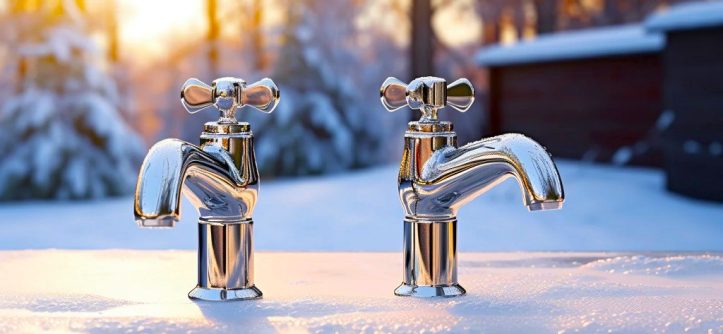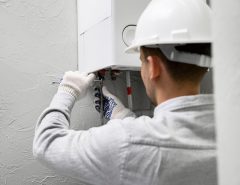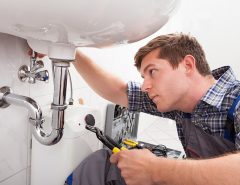Hey there, homeowners! Let’s talk about something that often lurks in the shadows until disaster strikes – plumbing. We all know the panic that sets in when a pipe bursts or a faucet won’t stop leaking. But what if I told you that there’s a superhero cape for your plumbing, and it’s called preventive maintenance?
In this chit-chat about plumbing upkeep, I’ll spill the beans on why preventive plumbing maintenance is the unsung hero of a happy home. So, grab a cup of coffee, get comfy, and let’s dive into the world of leaky faucets, clogged drains, and the magic of keeping it all in tip-top shape.
1. The Wisdom of the Drip
Ever heard the saying, “Don’t let a drip become a deluge”? Well, it’s not just a catchy phrase – it’s the golden rule of plumbing. That tiny drip might seem harmless, but over time, it can transform into a water-wasting monster that also takes a toll on your wallet. The remedy? Fix it pronto!
Take a stroll through your house, and befriend those faucets. If any of them are playing a tune of their own, get out of your toolbox and show them who’s boss. A leaky faucet is not just a nuisance; it’s a cry for help from your plumbing, asking for a little TLC.
2. Flush Out Trouble Before Trouble Flushes You Out
Let’s face it – the toilet is the unsung hero of our daily lives. But it can quickly turn into a villain if not treated with respect. Regularly check for leaks and phantom flushes (when the toilet mysteriously flushes by itself) to prevent water waste and potential damage.
Here’s a tip: Drop a little food coloring into the tank. If you see it in the bowl without flushing, you’ve got a leak. Time to tighten those bolts or call in the cavalry (a plumber, in layman’s terms).
3. Embrace the Hairnet for Your Drains
Imagine your drain as Rapunzel’s tower, and the hair as the prince trying to climb up. Well, in this fairy tale, the prince can wreak havoc! Hair is a major culprit when it comes to clogged drains. To avoid the drama, invest in drain screens.
These nifty contraptions catch hair and debris before they embark on a journey down your pipes. It’s like giving your plumbing a spa day – clean, refreshed, and ready to face whatever you throw at it.
4. Be the Sherlock Holmes of Water Leaks
Water leaks are the sneakiest culprits, often hiding in plain sight. Ever noticed a mysterious stain on your ceiling or a damp patch on the wall? Time to put on your detective hat and follow the trail.
Inspect your walls, ceilings, and floors regularly for any signs of water damage. It could be a leaky pipe or a poorly sealed joint. Remember, Sherlock would never let a leak go unnoticed!
5. Show Your Water Heater Some Love
Your water heater works tirelessly, providing you with warm showers and cozy baths. Return the favor by giving it some regular attention. Sediment buildup is the arch-nemesis here, causing your water heater to work harder and be less efficient.
Give your water heater a spa day by draining a quarter of its tank every six months. It’s like a detox for your plumbing – flushing out the gunk and leaving your water heater feeling brand new.
6. The Fantastic Voyage of the Garbage Disposal
Your garbage disposal is a true hero in the war against kitchen waste. But even heroes need a break. Avoid overloading it with grease, fibrous veggies, or non-food items. Treat it well, and it’ll keep your kitchen sink from turning into a disaster zone.
A quick tip: Run cold water for about 15 seconds before and after using the disposal. It helps flush the waste down the pipes, keeping everything in shape.
7. Caulk Like a Pro
Caulking is the unsung hero of the plumbing world – the superhero costume that keeps water from infiltrating your home. Check the caulking around your tubs, showers, and sinks regularly. If it’s cracked or peeling, it’s time for a makeover.
Grab a caulking gun, put on your DIY cape, and seal those gaps. It’s a small task that pays big dividends in preventing water damage and mold growth.
8. Don’t Ignore the Humble Hose Bib
The outdoor hose bib may seem like the quiet kid in the class, but it plays a crucial role in your plumbing ecosystem. Before winter sets in, disconnect your hoses and drain the bibs to prevent freezing. A frozen hose bib can lead to burst pipes and a chilly reception from your plumbing.
Remember, a little effort now can save you from a plumbing predicament in the dead of winter. Your hose bib will thank you.
9. Channel Your Inner Green Thumb
Plumbing and gardening might seem worlds apart, but they have a common enemy – tree roots. Those little green guys can infiltrate your pipes, causing blockages and backups. Keep an eye on the trees near your plumbing lines and trim the roots if they start feeling a bit too adventurous.
Think of it as pruning your plumbing garden. It keeps everything neat and prevents the roots from turning into pipe-wrecking monsters.
10. Routine Check-Ups for Your Plumbing Doctor
Just like you go for a check-up to ensure you’re in tip-top health, your plumbing deserves the same TLC. Schedule an annual inspection with a professional plumber to catch potential issues before they escalate. It’s like a preventive vaccine for your plumbing – a little sting now to avoid a major headache later.
FAQ Time!
Q1: How often should I check for leaks?
A1: Regularly inspect your faucets, toilets, and visible pipes for leaks. If you notice any, fix them promptly to prevent water waste and potential damage.
Q2: Why is my water heater making strange noises?
A2: Strange noises from your water heater may indicate sediment buildup. Drain a quarter of the tank every six months to flush out the sediment and keep your water heater running smoothly.
Q3: Can I use any drain cleaner for clogged pipes?
A3: While commercial drain cleaners can be effective, they may also damage your pipes. Consider using natural alternatives like baking soda and vinegar or consult a plumber for safe solutions.
Q4: How do I know if my garbage disposal needs replacing?
A4: If your garbage disposal is frequently jammed, making strange noises, or not working efficiently, it may be time for a replacement. Consult a professional for an assessment.
Q5: Do I really need a professional plumber for routine check-ups?
A5: Yes, scheduling an annual inspection with a professional plumber is crucial for preventive maintenance. They can identify potential issues and ensure your plumbing stays in top-notch condition.
And there you have it, folks! Your guide to preventive plumbing maintenance – because a happy home starts with a happy plumbing system. Give your pipes the love they deserve, and they’ll repay you with years of leak-free bliss. Happy plumbing!




